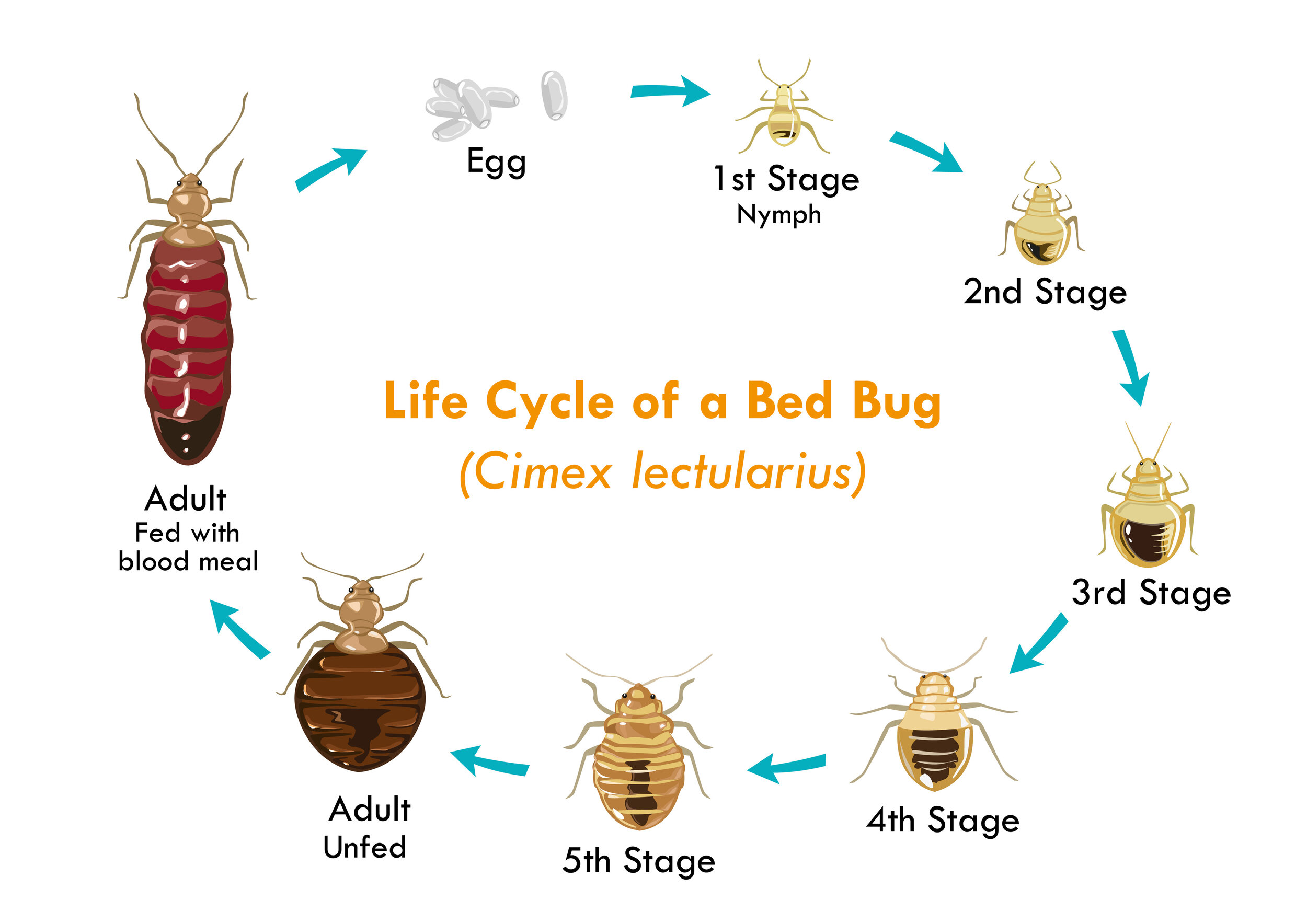A1 Bed Bug Exterminator Houston: Quick Removal Solutions
A1 Bed Bug Exterminator Houston: Quick Removal Solutions
Blog Article
Understanding the Lifecycle of Parasites for Targeted Control Approaches
Understanding the lifecycle of bugs is an essential facet of reliable parasite management techniques. Via a deeper understanding of how parasites progress and prosper, tailored control methods can be created to deal with specific points in their lifecycle, eventually leading to even more effective parasite administration outcomes.
Value of Comprehending Pest Lifecycle
Comprehending the lifecycle of parasites is necessary for establishing efficient and targeted control methods in bug administration. By comprehending the numerous phases a parasite goes through from egg to adult, parasite control professionals can identify susceptible factors in the lifecycle where treatment can be most effective.
Moreover, acknowledging the particular environmental conditions required for every phase of the pest's lifecycle can guide choices on habitat modification or exclusion methods to interrupt the lifecycle and minimize parasite populations. This knowledge enables pest monitoring experts to carry out aggressive steps rather than relying solely on reactive therapies, leading to more lasting and long-term bug control options. Inevitably, a complete understanding of bug lifecycles encourages bug control professionals to customize their techniques efficiently, making the most of and minimizing ecological impacts control outcomes.
Secret Stages in Parasite Growth
To successfully execute targeted control methods in bug administration, a vital element lies in comprehensively determining and recognizing the essential phases in parasite advancement. Insect development usually consists of several key stages that are crucial for their lifecycle and monitoring.

Vulnerabilities in Insect Lifecycle
Throughout the different phases of a bug's lifecycle, unique vulnerabilities arise that can be tactically targeted for reliable control steps (A1 Bed bug Exterminator houston). One important vulnerability exists in the egg phase, where pests are frequently extra prone to specific pesticides or organic control representatives due to their soft outer shell, making them less complicated targets for treatment. Comprehending these vulnerabilities in the insect lifecycle is important for creating effective and precise control techniques that efficiently handle pest populations while lessening environmental influence.
Implementing Targeted Control Procedures

Implementing targeted control measures commonly entails a multi-faceted technique. This may include habitat alteration to make the setting less congenial to insects, such as getting rid of standing water for insect control or sealing entrance factors for rodents. In addition, biological control techniques can be used, where natural killers or pathogens are presented to keep pest populations in check.
Integrated Insect Monitoring (IPM) strategies that incorporate numerous control steps in a worked with and lasting way are commonly the most efficient in achieving long-lasting parasite monitoring objectives. By executing targeted control measures based on a complete understanding of pest lifecycles, bug populaces can be effectively controlled while decreasing dangers that site to human health and the atmosphere.
Boosted Parasite Monitoring Practices

Furthermore, the incorporation of organic control representatives, such as all-natural predators or pathogens of pests, can help in reducing dependence on chemical pesticides view website and advertise a more well balanced environment. Executing physical barriers and catches can likewise belong to boosted bug administration practices, offering safe and targeted solutions for insect control. Additionally, making use of scents and various other semiochemicals can interrupt pest mating patterns and communication, bring about decreased parasite populaces gradually.
Final Thought
By recognizing crucial stages in parasite growth and vulnerabilities in their lifecycle, targeted control procedures can be applied to lessen insect populations. Improved insect monitoring practices can help minimize the dependence on broad-spectrum pesticides and promote even more eco pleasant and sustainable bug control approaches.
Understanding the lifecycle of insects is crucial for establishing reliable and targeted control approaches in bug administration. By understanding the numerous stages an insect goes through from egg to adult, insect control professionals can identify susceptible factors in the lifecycle where intervention can be most effective. Ultimately, an extensive understanding of parasite lifecycles equips bug visit this web-site control professionals to tailor their strategies properly, making the most of and decreasing ecological influences control results.
By implementing targeted control actions based on a detailed understanding of parasite lifecycles, parasite populations can be effectively regulated while lessening dangers to human wellness and the environment.
By determining essential stages in bug advancement and vulnerabilities in their lifecycle, targeted control measures can be applied to lessen pest populations.
Report this page